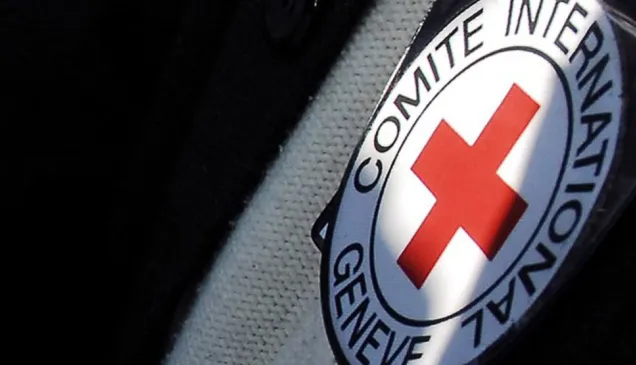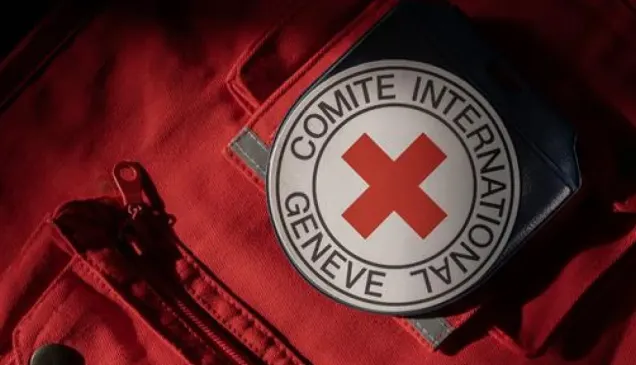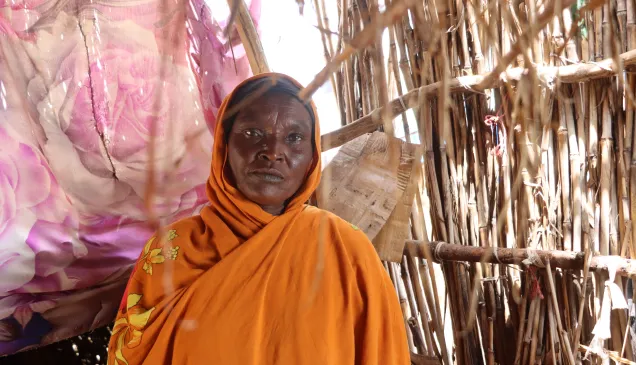Helping the helpers: strengthening the mental health of public service professionals
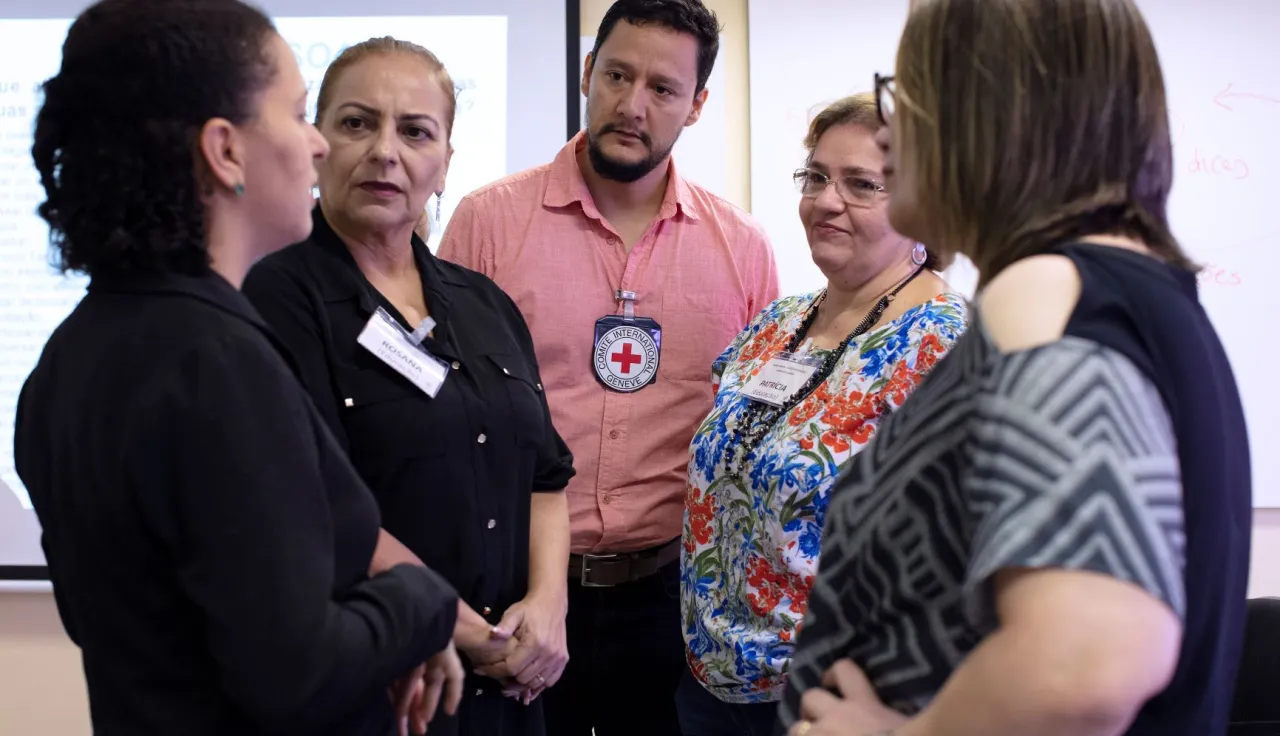
Urban violence affects people's mental health and psychosocial well-being. With the aim of strengthening the mental health and skills of Fortaleza´s public service professionals, who are the first to offer support to communities, the International Committee of the Red Cross (ICRC) launched its "Caring for Caregivers" programme in 2019.
The programme, implemented with the support of the Municipality of Fortaleza, consists of training and self-care sessions offering basic psychological support for the professionals of the Health, Youth, Education, Human Rights and Social Development Secretariats of Fortaleza, and the professionals who work in Domestic Care Service.
"These people experience the same difficulties caused by urban violence as the communities they serve, while at the same time providing social services to the population. Their profession leaves them vulnerable to developing stress, depression and anxiety, in addition to other signs associated with secondary traumatic stress or secondary traumatic stress," explains the ICRC Mental Health and Psychosocial Support programme advisor, Elvis Posada Quiroga.
The Caring for Caregivers programme aims to address the psychological and psychosocial needs of these professionals. The objective of this training is to strengthen mental health and develop the skills needed for crisis intervention, active listening, empathy and stress management. By the end of the year, the goal is to train 60 people in three separate groups. Each group will meet ten times.
"Their profession leaves them vulnerable to developing stress, depression and anxiety"
Elvis Posada Quiroga, ICRC Mental Health and Psychosocial Support Programme Advisor.
Course Instructor Francisco Soares works in the first group. "It is proving to be very valuable. We have identified many qualities that we need to work on in our daily life to improve our behaviour," he explains. The Protagonismo Juvenil (Youth Protagonism) supervisor of the Cuca Institute, Jesse Santana, also says she has seen positive results. "The training has really helped me to identify some of the stressful situations that we experience in our day-to-day lives and to find strategies to deal with these situations," she says.
Psychologist Vanesa Pereira, who works for the Human Rights and Social Development Secretariat in the Municipality of Fortaleza, believes the programme is very significant. "I am part of a working team that focuses on caring for caregivers, for the social workers of the municipality. We are developing a care and quality of life project for workers," she explains.
For Vanesa, the training also encourages self-care in her personal life. "It has really helped me to realize the need to introduce changes, because often we use lack of time and daily business as an excuse to justify ourselves. In essence, we end up neglecting some areas that affect us emotionally."
"It is proving to be very valuable. We have identified many qualities that we need to work on in our daily life to improve our behaviour"
Francisco Soares, Course Instructor.
The Caring for Caregivers programme also promotes dialogue with the secretariats. The objective is to educate the authorities in order for them to develop and strengthen mental health protocols for their professionals dealing with critical incidents resulting from armed violence.
The Mental Health and Psychosocial Support programme forms part of the activities that the ICRC carries out in the region to strengthen the development of psychosocial strategies that tackle the effects of violence on individuals and communities.
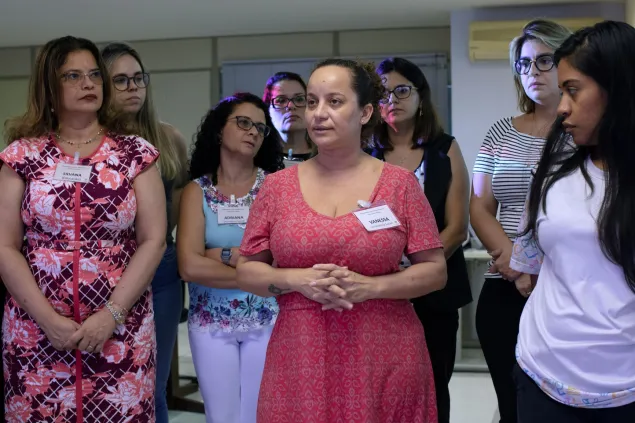
Psychologist Vanessa Pereira participates in the practical exercises of the Caring for caregivers course
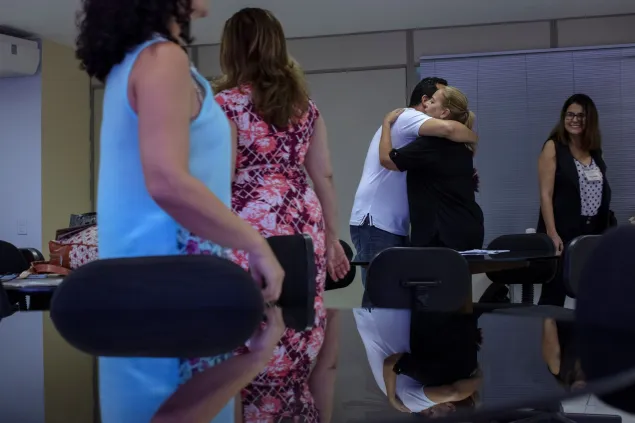
The training aims to develop empathy and crisis management skills
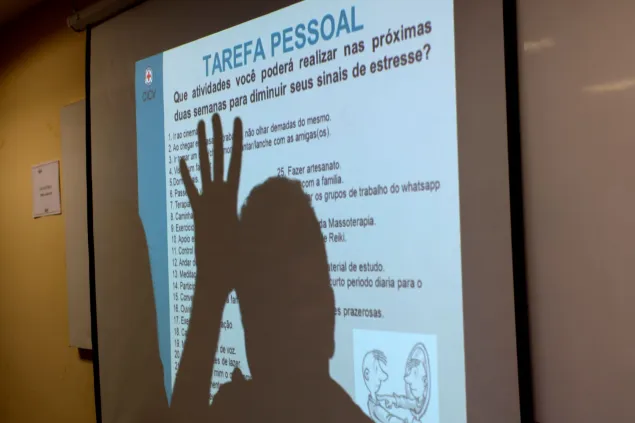
Teaching content focuses on how to identify and manage signs of stress, anxiety and depression
The ICRC in Ceará
The ICRC began working in the capital of the State of Ceará in April 2018 after signing a technical cooperation agreement for the implementation of the "Safer Access" programme with the Municipality of Fortaleza. In October of the same year, a technical cooperation agreement was signed with the Public Security Secretariat to provide train-the-trainers courses on human rights in police work. In February 2019, the ICRC signed another technical cooperation agreement with the municipal Citizen Sacurity Secretariat and the Municipal Guard of Fortaleza to train the city's policemen, who will be multiplying agents of human rights standards.
In April 2019, the ICRC and the Government of the State of Ceará signed a memorandum of understanding agreeing to work in partnership to reduce the humanitarian consequences of armed violence on the population.

